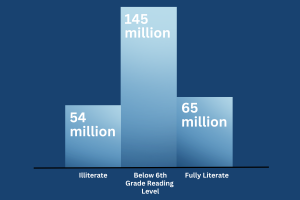The Evolution of BTS: Fan Edition
April 3, 2020
When I first heard of BTS, I was not expecting much. I thought that they were simply another regular boy band, with average boy band songs in a language I could not understand. To validate my premature judgement about the band, I forced myself to sit down and listen to all of BTS’s “Skool Luv Affair” album. I distinctly remember my lack of expectations at the beginning, believing that the music would be similar to American pop, except in a different language, but those feelings soon subsided and were replaced by a sense of curiosity and amazement.
To my fascination, as I began listening I realized I could understand the messages behind most songs, despite my limited knowledge about the Korean language; never did I envision myself enjoying another culture’s music. “Skool Luv Affair” sparked my interest in the band and made me an unofficial fan — though I still refused to call myself a fan in public. However, the more of their music I listened to, the more public my feelings of excitement and appreciation for the band became.
Unfortunately, in the past couple of years, those feelings have undergone an unexpected change. Toward the end of 2016, BTS had a huge surge of fame after their “Blood, Sweat and Tears” music video went viral on YouTube. They soon became an international sensation, causing their fanbase to increase drastically. Soon after, they won several Billboard awards for their music.
At first, I was more than happy to welcome BTS’s newfound success and the fans that it brought. The aftermath of this fame, however, was horrifying. Listening to BTS, being a fan and going to their concerts all became a massive trend, especially in California. Friends who had told me they disliked the band when I had shown them their music a couple of months before now began to join the fandom, suddenly claiming to love the music the band produced.
As a fan since BTS’s debut, I felt insulted by many of the new fans entering the BTS fandom and the way they asserted that they loved the music when, in reality, they only knew one song or album. The collective ignorance of these new fans almost made me want to leave the fandom, but I stayed because I still appreciated and enjoyed the band’s music.
However, the path of stardom BTS had chosen soon destroyed the connection I had once felt toward their music. I no longer felt excited or amazed. At first I thought I had simply heard too much of their music in the media, but after the release of “Idol”, their collab with Nicki Minaj, I realized that it was the band that had changed, not me.
Their music, once rebellious and unconventional, had now morphed into the overplayed genre of mainstream pop, validating the prejudice I had held before becoming a fan. Hearing it on the radio and on TV further solidified my departure from the fandom. However, this didn’t stop me from being happy for the band in general. I was proud of the immense success they had achieved, but was unhappy with the fact that they had changed themselves in order to get to that point.
After leaving the fandom in 2017, I didn’t expect to return. I thought I would love BTS from afar, away from the toxicity of the disingenuous fandom. Truth be told, I did enjoy the visuals and choreography of their post-2017 music, but still found it difficult to connect with the actual content of their work. That is, until the release of their new album “Map of the Soul: 7” on February 21.
This album was a highly anticipated album as it celebrates the seven members of the group on their seven-year anniversary as a band. I was not expecting to be amazed by this album in any way, but I ended up nearly crying after listening to the third iteration of “We are Bulletproof,” a song that serves as a tribute to the beginnings of the band and its fans. It represents the band’s journey and reflects their name itself, which translates to “Bulletproof Boy Scouts.”
In general, “Map of the Soul: 7” speaks true to the individual characters of the members and the original persona of the band. BTS recently admitted to having an identity crisis after their spike in fame in 2016 and how “Map of the Soul: 7” is an album that goes back to the roots of the band itself.
This album has successfully brought me back into the band’s fandom. As someone who has experienced an identity crisis myself, I better connect with its themes of identity and depression than with themes of love and heartbreak prevalent in the previous albums.
Regardless of my leaving and rejoining the band’s fandom, I still maintain a genuine respect for them and they have come to hold an important place in my life. Listening to their music opened my eyes to the different cultures and languages of the world. They have taught me that language is not always a barrier and that music is a universal language of its own, one of which all can understand.
In the future, I may or may not have another falling out with the band, but one thing I know for sure is that BTS and the fandom I was part of has given me countless memories that I would not have been able to have made otherwise, and for that I am forever thankful.



























































